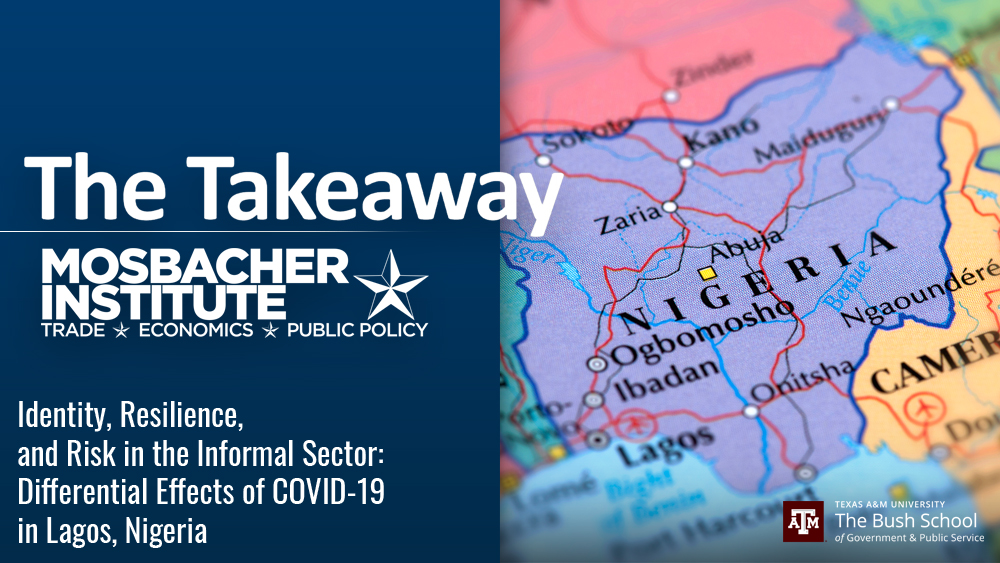
While the health effects of COVID-19 are being widely reported, less is known about the economic, social, and security impacts of the pandemic, particularly in the developing world. Bush School faculty member Jessica Gottlieb is helping to answer those questions.
Backed by a grant from the Abdul Latif Jameel Poverty Action Lab (J-PAL), one of the world’s foremost centers for experimental research on economic development and poverty, Bush School of Government and Public Service Associate Professor Jessica Gottlieb is studying the effects of COVID-19 on market vendors in Africa’s largest city, Lagos, Nigeria.
Some of the early research findings from Gottlieb’s project are described in the latest issue of The Takeaway, “Identity, Resilience, and Risk in the Informal Sector: Differential Effects of COVID-19 in Lagos, Nigeria.” The policy brief reports on the risks of and resilience to the COVID-19 pandemic learned from surveying a random sample of informal sector vendors. The vendors’ experiences are indicative of those of a large and particularly vulnerable subset of the population in the developing world—actors in the urban informal economy who live day-to-day and whose economic activities are deeply impacted by the crisis.
Gottlieb and her research partner, Adrienne LeBas from American University, were able to turn around a phone survey—necessary in the time of COVID—quickly because they already had the contact information for the vendors from a prior project. Looking ahead, they are aiming to work with J-PAL and the Lagos State Government to use lessons from these surveys to design a future randomized controlled study that would assess the effectiveness of different government policies to overcome some of the obstacles to service access that were uncovered in their survey.
The Takeaway is a publication of the Mosbacher Institute for Trade, Economics, and Public Policy at the Bush School of Government & Public Service at Texas A&M University.

